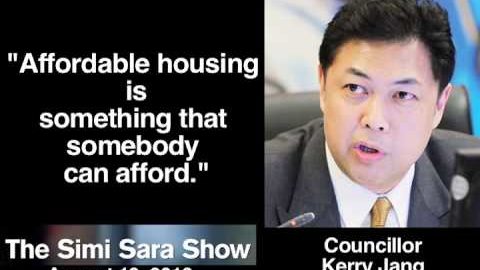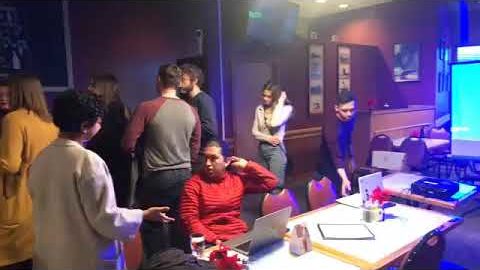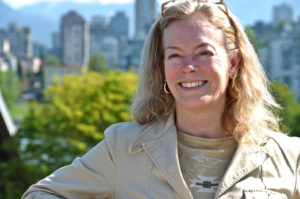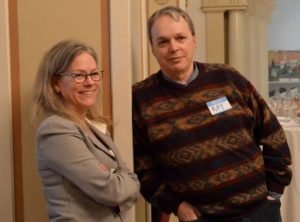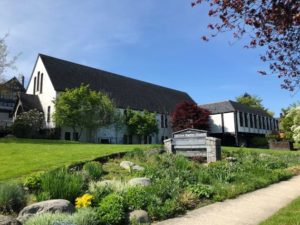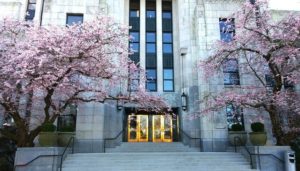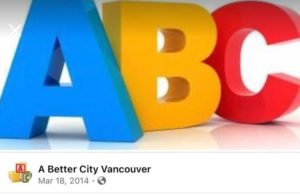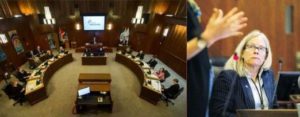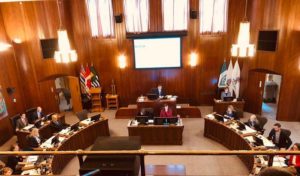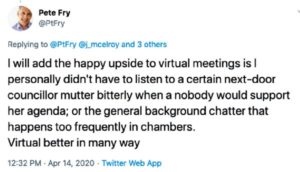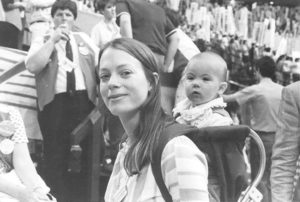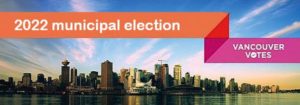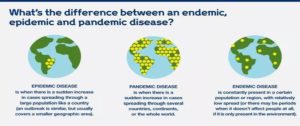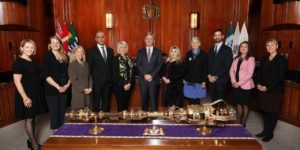
The current Vancouver City Council is the worst, most inept, least productive, least progressive City Council Vancouver citizens have witnessed in 50 years.
In the amalgam of Green Party, OneCity, COPE and “independent” (formerly Non Partisan Association) Councillors, we have a group of 10 Councillors and a Mayor who cannot seem to get along with one another, do not work in common cause to benefit the electorate, and genuinely don’t like one another.
Burnaby City Council vs Vancouver City Council, 2018 – 2022

In May 2019, Burnaby City Council adopted a ‘best in Canada’ tenant assistance policy that provides support for tenants displaced from rental buildings with 5-plus apartments, mandating developers cover tenants’ moving costs (up to $1,400), and pay the difference between a tenant’s current rent and the rent in the new building tenants move to, while providing the …
Right of first refusal to displaced tenants to move into the replacement building once construction is complete, at the same rent as they paid before being displaced (subject only to the provincially mandated maximum annual increases), as well as mandating that developers will again have to cover moving costs when tenants move back into the new building.
The Burnaby City Council tenant assistance plan created inclusionary rental zoning bylaws, which requires of developers one-to-one replacement of demolished rental apartments, and that at least 20% of new housing developments in Burnaby will be secured as rental, in perpetuity.
Did Vancouver’s City Council’s purported, on the side of working people ‘left saviour’, OneCity Vancouver’s Christine Boyle, or the three-person environmental Green Party contingent, the Mayor, or any one of the five (now former) Non-Partisan Association City Councillors even consider implementing a tenant assistance policy similar Burnaby’s — and, now, New Westminster, as well?
Not on your life they didn’t, a point made comprehensible in the tweet below.
As Charles Menzies — a Professor in the Department of Anthropology at the University of British Columbia — wrote on Twitter yesterday in response to VanRamblings’ Tuesday column, about how some folks have deemed current Vancouver City Councillor Colleen Hardwick to be “right wing”, he wrote …
the only real authentic leftist on council is Swanson – all the others are centre/right, right/right, and green/right.
— hagwil hayetsk (@charlesmenzies) October 19, 2021
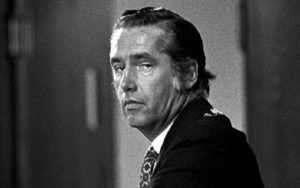 Tom ‘Not So Terrific’ Campbell, controversial Vancouver mayor, 1966 to 1972
Tom ‘Not So Terrific’ Campbell, controversial Vancouver mayor, 1966 to 1972
In 1966, running as an independent, a brash Tom Campbell defeated Non Partisan Association mayor, Bill Rathie, to become Vancouver’s 31st mayor. From the outset, Campbell heralded a pro-development ethos that would make even Vision Vancouver (not to mention, our current City Council) blush, as he advocated for a freeway that would cut through the downtown east side, demolish the historic Carnegie Centre at Main and Hastings, and bring about the construction of a luxury hotel at the entrance of Stanley Park, as well.
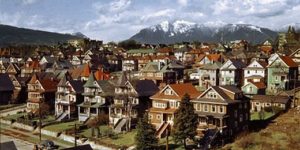 Vancouver’s West End neighbourhood, circa 1960, pre high-rise construction
Vancouver’s West End neighbourhood, circa 1960, pre high-rise construction
In the West End, where Campbell — a wealthy developer — owned substantial properties in the neighbourhood, the newly-elected Mayor all but ordered the demolition of almost the entirety of the well-populated West End residential neighbourhood — housing mostly senior citizens in their single detached homes — as he made way for the rapid construction of more than 200 concrete high-rise towers, irreversibly transforming Vancouver’s West End … forever.
All of these “changes” augered controversy among large portions of the Vancouver populace, leading to vocal, often violent protests throughout Campbell’s treacherous tenure as Mayor, finally leading to his defeat at the polls in the November 1972 election, with the election of a majority, progressive T.E.A.M. (The Electors’ Action Movement) Vancouver civic administration.
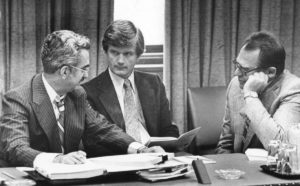 Mayor Art Phillips discussing his legacy project, the Property Endowment Fund
Mayor Art Phillips discussing his legacy project, the Property Endowment Fund
Since 1972 and the election of the T.EA.M majority Vancouver civic government, whatever their stripe over the years — Non Partisan Association, COPE or Vision Vancouver — have strictly adhered to the dictum of Abraham Lincoln, “a government for and by the people.” Can the members of our current City Council honestly say that their primary goal is to serve the “public good”?
How Can VanRamblings Write That The 2021 City Council is the Worst in 50 Years?
 A diverse — not — set of Vancouver City Council aldermen, circa 1933
A diverse — not — set of Vancouver City Council aldermen, circa 1933
Say what you will about Vision Vancouver Councillors.
At least they got along with one another, and saw themselves as a team working to make Vancouver a greener and more livable city, while also working to achieve the laudable goal of eliminating homelessness in our city.
Vancouver’s current Council? How do they fare in an objective analysis?
Unlike any City Council elected to Vancouver City Hall over the course of the past 50 years, the current contingent of Vancouver City Councillors have steadfastly continued to spot rezone across the city, causing land prices to skyrocket, while not listening to the citizens who elected them to office.
Absolutely bereft of humility, most of the 10 members of Council have arrogantly set about to enact policy that is “good for us” because ‘our’ Councillors “know better” and were elected to govern not listen — despite what the citizens of the city say we all need — all the while building ever more unaffordable condominium and market rental complexes.
All this while barely paying lip service to the provision of “social housing” and “affordable housing” — which Council continues to define in the same manner former Vision Vancouver Councillor Kerry Jang elucidated as …
“Affordable housing is something that somebody can afford.”
Isn’t it so much hyperbole to call this Council the worst in 50 years?
To deny the Councillors their innate humanity, while failing to take into account that all 10 Councillors and our Mayor are dedicated servants of the people, who week-in and week-out work anywhere from 50 to 75 hours a week, more often than not sitting in Council chambers from 9:30 a.m. until 11 p.m., on behalf of and in the social, financial and environmental interests of Vancouver citizens, as creditable and exemplary servants of the public good?
Maybe.
Over the next 360 days, leading up to the upcoming and always critically important Vancouver civic Election Day, on Saturday, October 15, 2022, VanRamblings will set about to support the claims we make, while introducing you to the next contingent of civic candidates seeking elected office in Vancouver.
